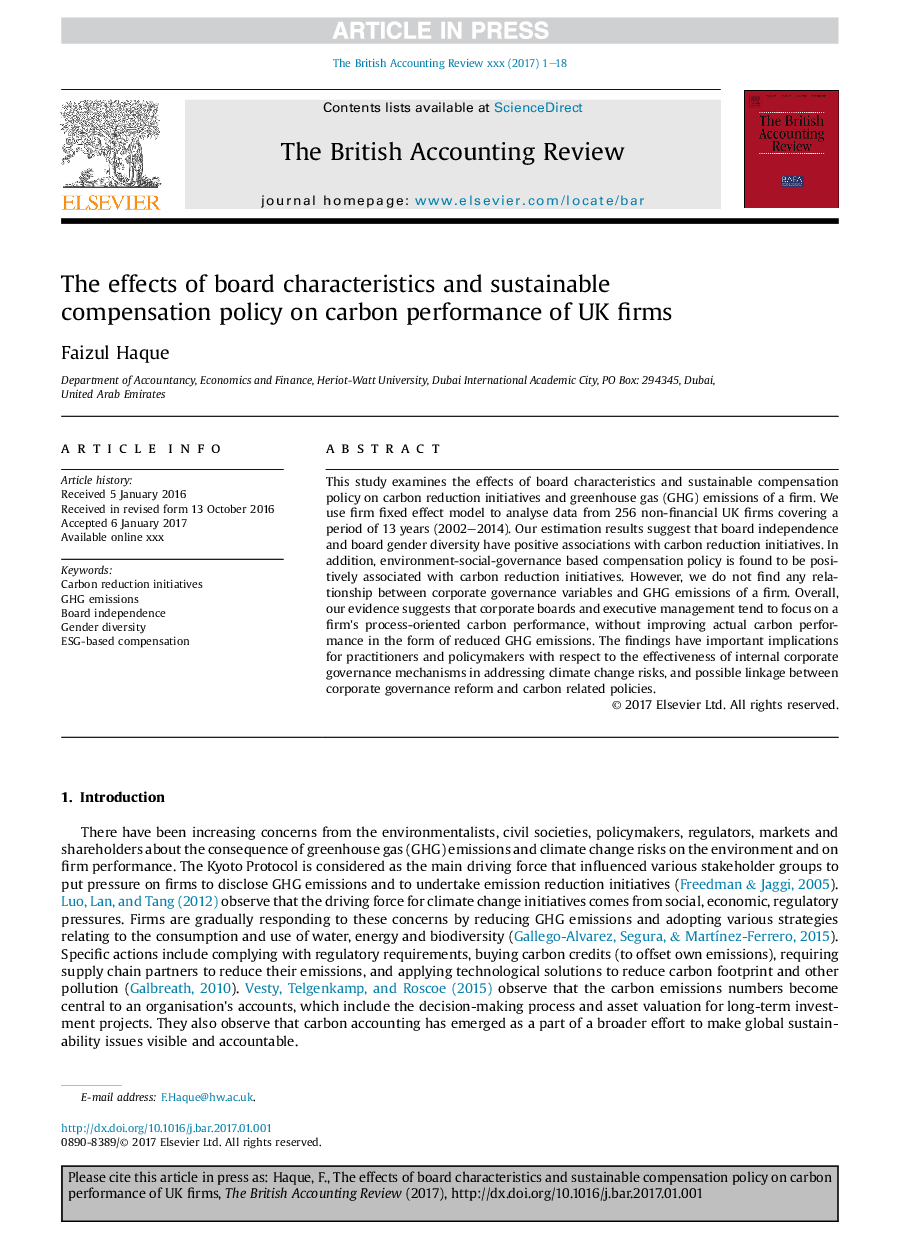| Article ID | Journal | Published Year | Pages | File Type |
|---|---|---|---|---|
| 5107511 | The British Accounting Review | 2017 | 18 Pages |
Abstract
This study examines the effects of board characteristics and sustainable compensation policy on carbon reduction initiatives and greenhouse gas (GHG) emissions of a firm. We use firm fixed effect model to analyse data from 256 non-financial UK firms covering a period of 13 years (2002-2014). Our estimation results suggest that board independence and board gender diversity have positive associations with carbon reduction initiatives. In addition, environment-social-governance based compensation policy is found to be positively associated with carbon reduction initiatives. However, we do not find any relationship between corporate governance variables and GHG emissions of a firm. Overall, our evidence suggests that corporate boards and executive management tend to focus on a firm's process-oriented carbon performance, without improving actual carbon performance in the form of reduced GHG emissions. The findings have important implications for practitioners and policymakers with respect to the effectiveness of internal corporate governance mechanisms in addressing climate change risks, and possible linkage between corporate governance reform and carbon related policies.
Related Topics
Social Sciences and Humanities
Business, Management and Accounting
Accounting
Authors
Faizul Haque,
